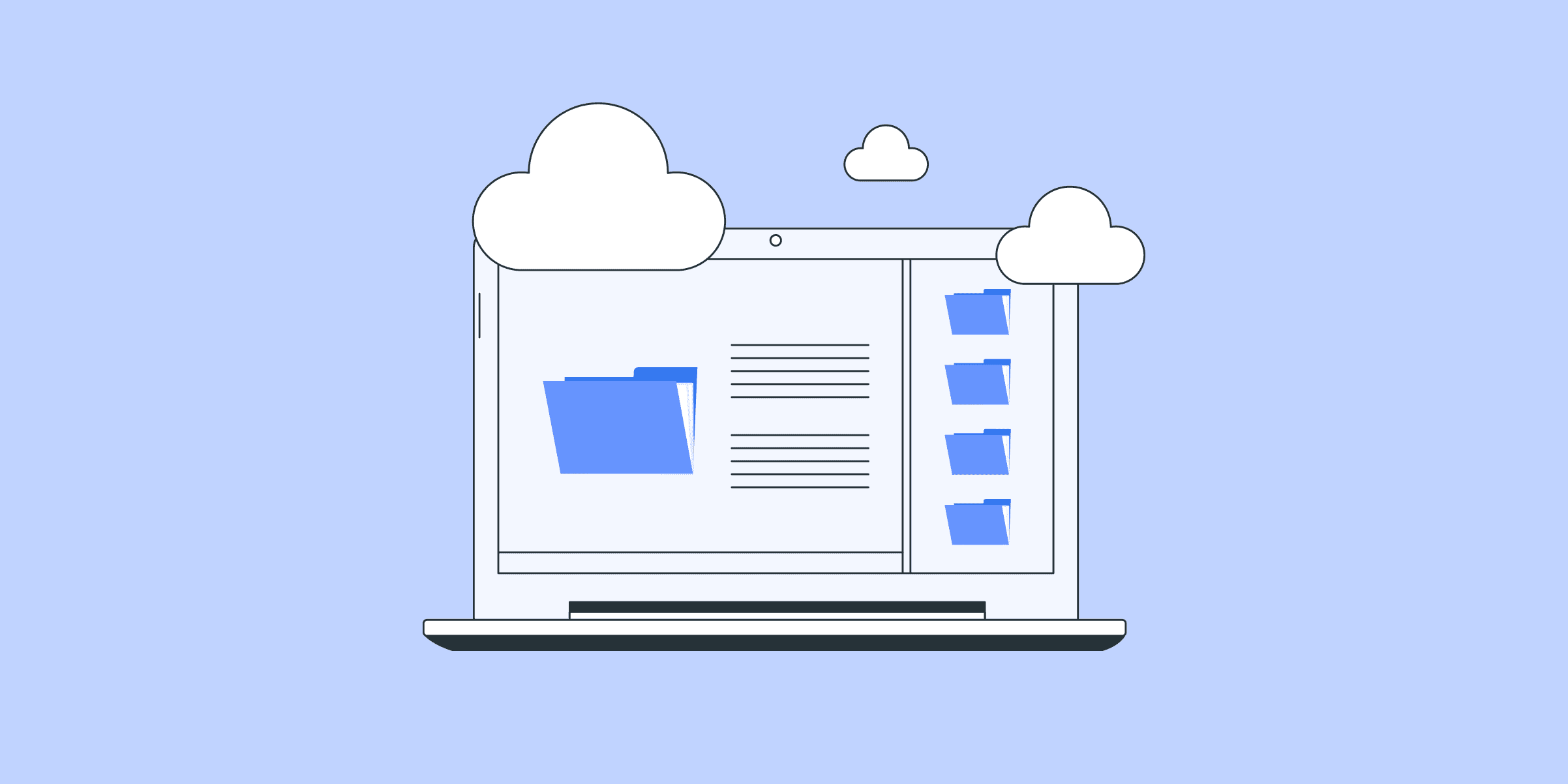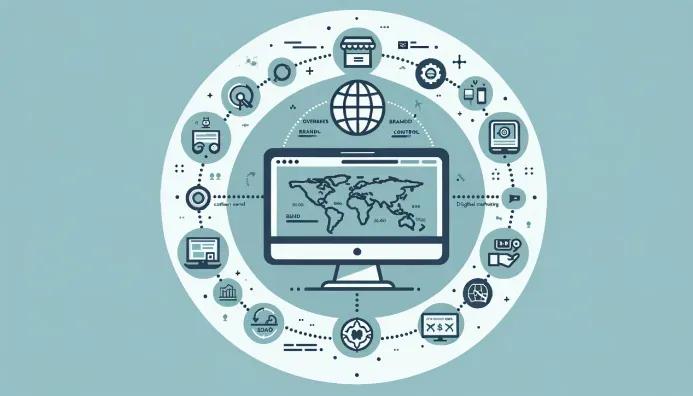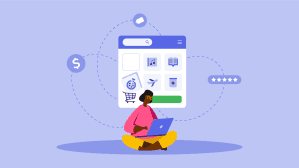
Understanding SSL(Secure Sockets Layer) and HTTPS Proxies: A Comprehensive Guide to Security, Anonymity, and Applications in the Modern Web Landscape
Introduction The Secure Sockets Layer (SSL), commonly referred to as HTTPS, has become a cornerstone of internet security and a vital tool for ensuring privacy, confidentiality, and data integrity in online communications. This article will explore what SSL is, the benefits and applications of SSL proxies, and the crucial role they play in various online activities, from web data scraping to brand protection. What is SSL or HTTPS? Secure Sockets Layer (SSL) is the standard technology responsible for establishing an encrypted link between a web server and a browser, ensuring the privacy, integrity, and authenticity of the exchanged data. It is denoted by the 'S' in HTTPS – the secure variant of the HTTP (HyperText Transfer Protocol). An HTTPS proxy is a type of proxy that uses the HTTPS protocol, adding an extra layer of security by encrypting the data traffic. This ensures that sensitive information such as login credentials, credit card numbers, and personal details remain concealed from unauthorized entities. Benefits of SSL / HTTPS Proxies Safer Connections- Encryption: By utilizing the SSL layer, all transmitted information between the requester and the target server is encrypted, thwarting potential eavesdropping or data manipulation.- Authentication: It ensures that communication occurs only with the intended server, minimizing the risk of interaction with fraudulent entities.- Data Integrity: The SSL layer guarantees that the transmitted data is not altered or corrupted during transmission. Increased Anonymity- IP Masking: An SSL proxy hides the user’s actual IP address, offering anonymity and reducing the risk of tracking or targeted attacks.- Enhanced Privacy: The encryption provided by SSL protects sensitive information and online activities from prying eyes, ensuring private browsing. How Do SSL / HTTPS Proxies Work? HTTPS proxies use the SSL/TLS (Transport Layer Security) protocols to provide end-to-end encryption. During the initial "handshake" process, the client and server agree on encryption parameters, including the selection of cryptographic algorithms and the exchange of secret keys. This leads to a secure tunnel, through which data flows encrypted, rendering it unintelligible to interceptors. Types of SSL Proxies Forward Proxy- Client-Side Protection: Decrypts and inspects outbound traffic, ensuring compliance with organizational policies and protecting against potential threats.- Access Control: Filters and restricts access to specific websites or content, aiding in bandwidth management. Reverse Proxy- Inbound Traffic Management: Intercepts and analyzes data coming from the web, providing additional security layers like DDoS protection.- Load Balancing: Distributes incoming traffic across multiple servers, optimizing resource use and ensuring a seamless user experience. Applications of SSL / HTTPS Proxies Web Data Scraping- Anti-Blocking Measures: Utilizes different IPs, reducing the risk of being identified and blocked, and thus facilitating large-scale data collection. Managing Social Media Accounts- Multiple Account Handling: Enables the legitimate management of various social media accounts without triggering security alerts. Ad Verification- Fraud Detection: Ensures that ads are being displayed as intended, identifying and combating fraudulent activities. Brand Protection- Intellectual Property Security: Monitors and prevents unauthorized use of trademarks, copyrights, or other intellectual properties. Unblocking Websites- Geo-Accessibility: Allows access to regionally restricted content by making requests from IPs within the permissible regions. Secure Connections- End-to-End Encryption: Safeguards sensitive data during transmission, rendering it secure against potential breaches. Anonymity- Complete Concealment: Enhances user privacy by masking personal information and browsing habits. Getting Limited Products- Access to Exclusive Releases: Facilitates the purchase of location-specific products through the use of proxies mimicking the required geographical location. By extending the applications and benefits of SSL, HTTPS proxies contribute significantly to an increasingly secure and anonymous online environment, meeting the diverse needs of users and organizations. Whether for personal privacy, corporate security, or specialized applications such as data scraping and ad verification, SSL / HTTPS proxies continue to be indispensable tools in the modern internet landscape. Conclusion SSL / HTTPS proxies offer a valuable combination of security, privacy, and versatility. Whether for scraping web data, managing social media accounts, or protecting a brand, these proxies provide a layer of protection that ensures safe connections and confidentiality. In an age where cyber threats are increasingly prevalent, SSL continues to be an essential component in maintaining secure and anonymous connections online. Its wide-ranging applications underline its importance in today’s interconnected digital landscape. By understanding and leveraging SSL, individuals and businesses can navigate the online world with confidence and security.

Understanding Static Residential ISP Proxies: Comprehensive Analysis and Use Cases
In the digital realm, the notion of proxies is not unfamiliar, serving as essential tools for ensuring privacy, enabling access, and facilitating data aggregation. Among the array of proxy types, Static Residential ISP Proxies (Internet Service Provider Proxies) have carved out a niche by amalgamating the virtues of residential and datacenter proxies. This article explores the depths of static residential ISP proxies, expounding on their underlying mechanics, benefits, and diverse applications. Delineating Static Residential ISP Proxies To understand static residential ISP proxies, it is necessary to deconstruct the term. A 'static' proxy denotes an unchanging, fixed IP address, providing the advantage of a persistent online identity. 'Residential' refers to the proxy's authentic residential IP, allocated by an ISP, enhancing its legitimacy. As such, static residential ISP proxies are real IP addresses, linked to a physical location, and remain constant over extended periods. ISP proxies emanate from data centers, bestowing them with superior speed, akin to datacenter proxies, while their residential nature cloaks them in the garb of a typical internet user. This unique combination makes ISP proxies hard to detect and therefore less susceptible to being blacklisted by web servers. The Merits of Static Residential ISP Proxies The raison d'etre for employing ISP proxies pivots around their compelling blend of speed, legitimacy, and constancy. By virtue of their residential origin, these proxies are less likely to be red-flagged or blocked, enabling seamless operations requiring trusted, stable IPs. Moreover, their datacenter genesis guarantees a high-speed connection, significantly enhancing efficiency. A Panorama of Static Residential ISP Proxies Use Cases ISP proxies find diverse applications across sectors, each exploiting their unique capabilities. A few salient use cases are as follows: Sophisticated Web Scraping Web scraping involves programmatically extracting information from webpages. However, large-scale scraping can draw the attention of web servers, often resulting in IP bans or restrictions. Here, ISP proxies offer a lifeline. Their ability to mimic a typical user coupled with their high speed facilitates efficient data extraction with minimal risk of detection or disruption. Circumventing Geo-restrictions In today's world, digital boundaries often mirror physical ones. Websites often employ geo-targeting to control content access. When a single, detectable IP address tries to bypass these restrictions, it can lead to permanent blocks. ISP proxies mitigate these issues by leveraging their wide-ranging, rotating IP addresses, giving the impression of regular users accessing from diverse locales. Social Media Management Running multiple social media accounts from one IP address can flag suspicious activity, potentially leading to account suspension. By assigning unique IP addresses to each social media account, ISP proxies diminish the risk of limitations or bans, thus enabling secure, anonymous social media management. Comprehensive Ad Verification Ad verification is a critical process ensuring the effective delivery of online advertisements. ISP proxies empower users to traverse the web and authenticate that their ads are engaging the intended demographic, appearing on relevant websites, and adhering to industry norms. Expeditious Sneaker Copping The business of purchasing limited-release sneakers, often employing automated bots, is colloquially known as sneaker copping. With shoe retailers employing stringent protection against bots, the legitimacy and rapidity of ISP proxies prove invaluable. Concluding Remarks While the initial costs of ISP proxies might be higher than conventional proxies, their combined speed, authenticity, and consistency yield unparalleled value for numerous online endeavors. Whether it's for advanced web scraping, SEO monitoring, social media management, ad verification, or sneaker copping, ISP proxies can significantly augment the efficacy of these operations. Incorporating ISP proxies into your operations could provide a decisive edge in the increasingly competitive digital world.
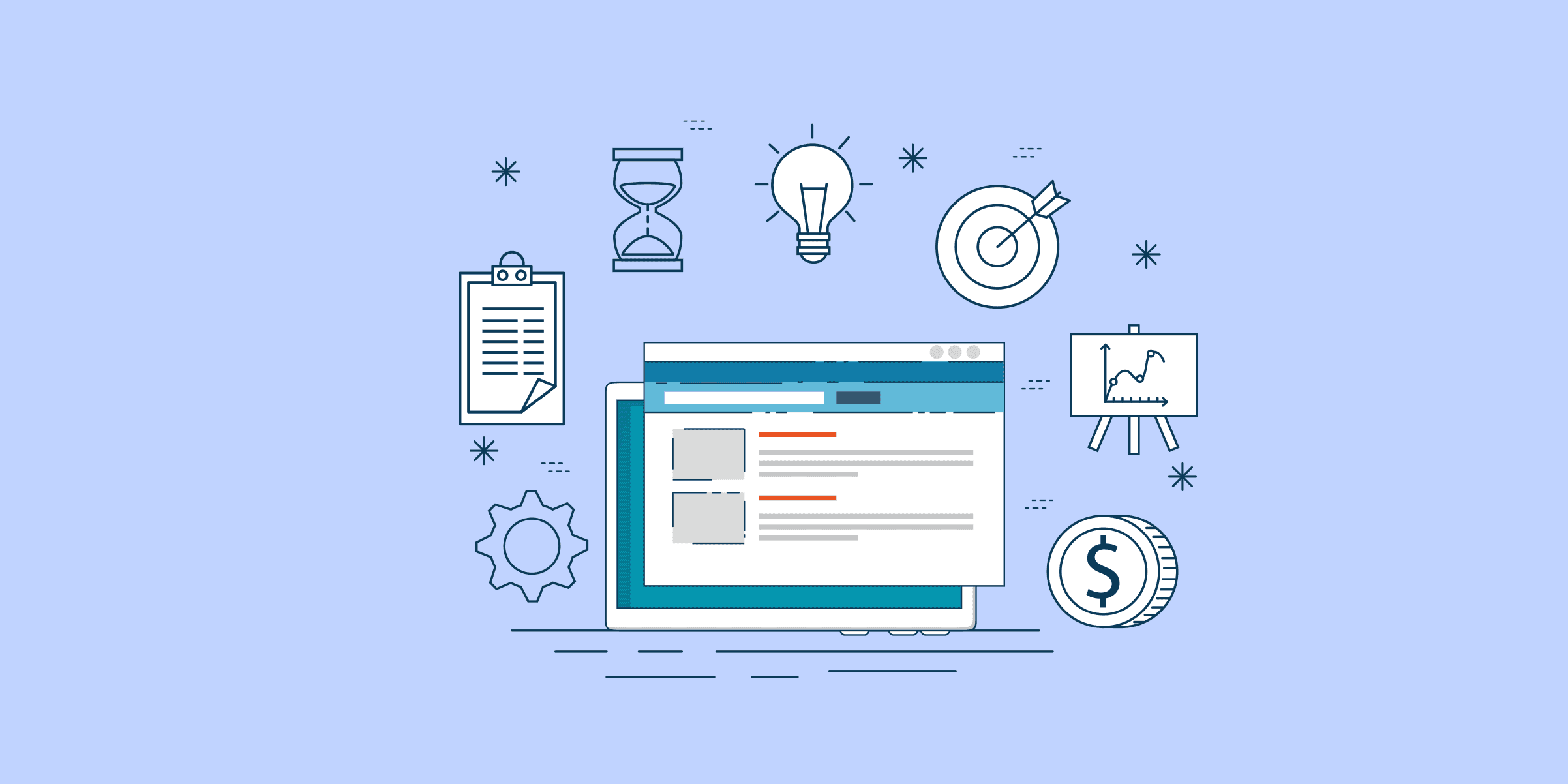
Understanding the Basics of Proxy IPs and Their Benefits
In today's digital world, maintaining online privacy and security is more important than ever. One of the most effective tools for achieving this is the use of proxy IPs. But what exactly is a proxy IP, and how can it benefit you?What is a Proxy IP?A proxy IP, also known as a proxy server, acts as an intermediary between your device and the internet. When you connect to the internet through a proxy, your requests are first sent to the proxy server, which then forwards them to the intended website. The website's response is then sent back to the proxy server and finally to your device. This process masks your original IP address, providing an additional layer of security and privacy.Types of Proxy IPsResidential Proxies: These proxies use IP addresses assigned by Internet Service Providers (ISPs) to homeowners. They offer high anonymity and are less likely to be blocked by websites.Data Center Proxies: These proxies come from data centers and are not associated with ISPs. They are fast and cost-effective but may be easier to detect and block.Public Proxies: These are free and available for public use. However, they often have security risks and may not be reliable.Private Proxies: These are exclusive and used by only one user at a time. They offer high security and performance but come at a higher cost.Benefits of Using Proxy IPsEnhanced Security: Proxy IPs add an extra layer of security by hiding your real IP address. This makes it harder for hackers to target your device and steal sensitive information.Improved Privacy: By masking your IP address, proxies help protect your online identity and activities from being tracked by websites and advertisers.Access to Geo-restricted Content: Proxies can help you bypass geo-restrictions and access content that may be unavailable in your region. This is particularly useful for streaming services, online shopping, and accessing restricted websites.Load Balancing and Bandwidth Savings: Proxy servers can cache frequently accessed content, reducing bandwidth usage and improving load times for users.Monitoring and Controlling Internet Usage: Organizations can use proxies to monitor and control employee internet usage, ensuring compliance with company policies and improving productivity.ConclusionProxy IPs are valuable tools for enhancing online security, privacy, and accessibility. Whether you're an individual looking to protect your online identity or a business aiming to improve network efficiency, understanding and utilizing proxy IPs can offer significant benefits. As the internet continues to evolve, staying informed about these tools will help you navigate the digital landscape safely and effectively.
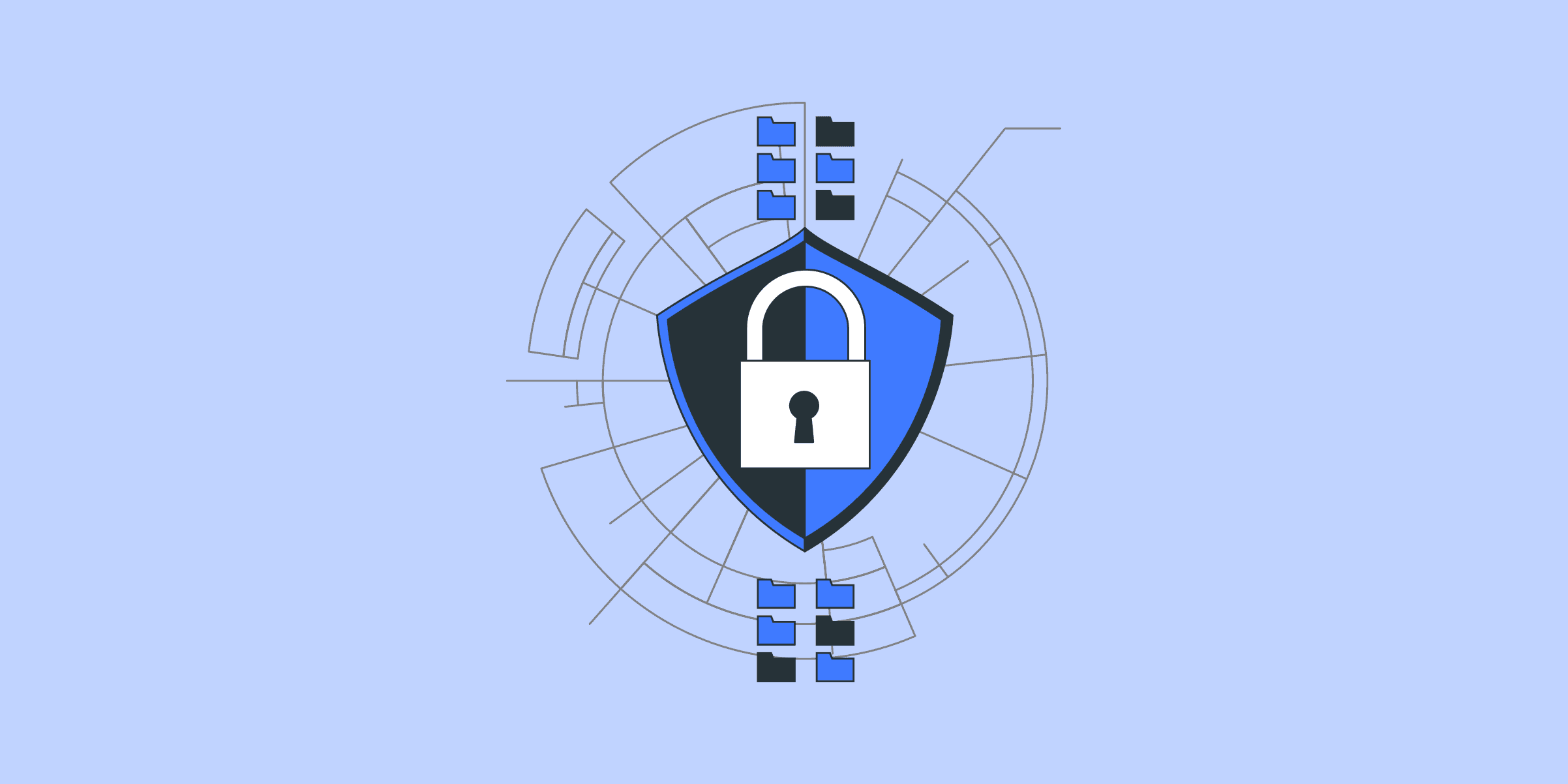
Understanding the Difference Between Datacenter Proxies and Static ISP Proxies
In the realm of internet privacy and security, proxies play a vital role in masking users' identities and safeguarding their online activities. Two prominent types of proxies that are often compared are Datacenter Proxies and Static ISP (Internet Service Provider) Proxies. While both serve similar purposes, they operate differently and offer distinct advantages and limitations. In this blog post, we'll delve into the disparities between these two proxy types to help you understand which might be more suitable for your needs.Datacenter Proxies:Datacenter proxies are servers hosted in data centers, which act as intermediaries between users and the internet. These proxies are not associated with an internet service provider but are instead hosted by third-party companies. Here are some key characteristics of datacenter proxies:Speed and Reliability: Datacenter proxies are known for their high speed and reliability. Since they are hosted in data centers with robust infrastructure, they typically offer faster connection speeds compared to other proxy types.Cost-effectiveness: Datacenter proxies are generally more affordable than other types of proxies, making them a popular choice for businesses and individuals looking for cost-effective solutions for web scraping, SEO monitoring, and other activities that require proxy usage at scale.IP Rotation: Many datacenter proxy providers offer IP rotation capabilities, allowing users to switch between different IP addresses to avoid detection and maintain anonymity.Static ISP Proxies:Static ISP proxies, on the other hand, are proxies assigned by internet service providers to their users. Unlike datacenter proxies, which are hosted in centralized data centers, static ISP proxies are distributed across various locations and are associated with specific ISPs. Here are some distinguishing features of static ISP proxies:Authenticity: Static ISP proxies provide users with IP addresses that are directly associated with legitimate internet service providers. This can be advantageous in certain situations where websites or online services prioritize traffic from residential IP addresses, as static ISP proxies mimic real user behavior more accurately.Stability: Since static ISP proxies are associated with specific ISPs, they tend to offer greater stability and reliability compared to other types of proxies. However, the performance of static ISP proxies can vary depending on the quality of the ISP and its network infrastructure.Limited IP Pool: Unlike datacenter proxies, which often offer a wide range of IP addresses, static ISP proxies are limited to the IP addresses provided by the respective ISPs. This limitation may impact scalability, especially for users requiring a large number of unique IP addresses.In summary, while both datacenter proxies and static ISP proxies serve the purpose of masking users' identities and providing anonymity online, they differ in terms of speed, cost-effectiveness, authenticity, and IP availability. Choosing between the two depends on your specific requirements and priorities. If you prioritize speed, affordability, and IP rotation, datacenter proxies may be the preferred choice. On the other hand, if authenticity and stability are paramount, static ISP proxies could be the better option. Ultimately, understanding the nuances of each proxy type will help you make an informed decision based on your needs.

Understanding the Difference between Forward Proxy and Reverse Proxy
Forward Proxy and Reverse Proxy: Everything You Need to KnowIn today's digital age, where almost every business has an online presence, the importance of website security and performance cannot be overstated. Two crucial components in achieving this are forward proxies and reverse proxies. In this blog post, we will delve into what forward proxies and reverse proxies are, their differences, and how they contribute to improved website performance and security.Forward Proxy:Let's start by discussing forward proxies. A forward proxy acts as an intermediary between clients (users) and servers. When a client makes a request to access a web resource, it first goes through the forward proxy server. The forward proxy then forwards the request to the target server on behalf of the client, and forwards the response back to the client. This process allows clients to access resources while maintaining anonymity and enhancing security.But why would someone want to use a forward proxy? Here are a few reasons:1. Anonymity: Forward proxies mask the client's IP address, making it difficult for servers to track and trace their online activities. This is especially useful when accessing restricted content or protecting your privacy.2. Content Filtering: Forward proxies can be configured to filter and block specific types of content, such as malware, viruses, or inappropriate websites. This ensures a safer browsing experience for users.3. Caching: Forward proxies can store and cache frequently accessed resources. This enables faster response times for subsequent requests, as the content is retrieved from the cache rather than the original server. This caching mechanism can significantly improve website performance and reduce server load.Reverse Proxy:Now let's move on to reverse proxies. Unlike forward proxies that act on behalf of clients, reverse proxies work on behalf of servers. When a client makes a request to access a web resource, it first goes through the reverse proxy server. The reverse proxy then routes the request to the appropriate backend server that hosts the requested resource. The backend server processes the request and sends the response back to the reverse proxy, which then forwards it to the client.Reverse proxies offer several benefits, including:1. Load Balancing: Reverse proxies distribute incoming client requests across multiple backend servers, evenly distributing the traffic load. This ensures optimal performance and prevents any one server from becoming overwhelmed with requests.2. Security: Reverse proxies act as a shield between clients and backend servers, protecting the servers from direct exposure to the internet. This adds an extra layer of security and helps mitigate potential DDoS attacks or unauthorized access attempts.3. SSL Termination: Reverse proxies can handle SSL encryption and decryption, lightening the load on backend servers and improving overall performance.Conclusion:In conclusion, forward proxies and reverse proxies are essential tools for enhancing website performance and security. Forward proxies provide anonymity, content filtering, and caching capabilities for clients, while reverse proxies offer load balancing, security, and SSL termination for servers. By implementing these proxies, businesses can ensure an improved user experience and protect their servers from potential security threats.If you're looking to improve your website's performance and security, consider leveraging forward proxies and reverse proxies. They are powerful tools that can make a significant difference in your online presence. Stay ahead of the competition and provide a safe browsing experience for your users by harnessing the power of proxies.

Understanding the Difference: Proxy vs Reverse Proxy - Explained
Proxy vs Reverse Proxy: Which one is Better for SEO?In the world of search engine optimization (SEO), understanding the difference between a proxy and a reverse proxy is crucial. Both play an important role in managing and improving website performance, but they have distinct functionalities and impacts on SEO. In this blog post, we will delve into the differences between a proxy and a reverse proxy and discuss which one is better for SEO.First, let's start by defining what a proxy and a reverse proxy are. A proxy acts as an intermediary between a client and a server, facilitating the request and response process. It can be used to hide the client's IP address, improve security, and cache data to reduce server load. On the other hand, a reverse proxy acts as an intermediary between the client and the web server. It is primarily used to enhance website performance, load balancing, and provide additional security.Now, let's explore the SEO implications of using a proxy. While a proxy can provide security benefits by hiding the client's IP address, it can also introduce potential issues for SEO. Search engines, such as Google, rely on IP addresses to determine the location and relevance of a website. Therefore, using a proxy can obscure the true IP address of a website and potentially impact its local search rankings. Additionally, proxies can sometimes be detected as "anonymous" or "spammy," which can negatively affect a website's trustworthiness in search engine algorithms.On the other hand, a reverse proxy offers several SEO benefits. One of the main advantages is improved website performance. Reverse proxies can cache static content, such as images and CSS files, reducing the load on the web server and improving page load times. Faster loading pages are not only user-friendly but also contribute to higher search engine rankings. Additionally, reverse proxies can help distribute traffic evenly among multiple servers, ensuring that a website remains accessible and responsive even during high traffic periods. This load balancing capability is especially valuable for websites that experience frequent spikes in traffic, such as e-commerce sites during holiday seasons or promotional campaigns.Reverse proxies also provide an added layer of security for a website. They can protect against distributed denial-of-service (DDoS) attacks by filtering out malicious traffic before it reaches the web server. Search engines prioritize secure websites, and having a reverse proxy in place can contribute to a website's overall trustworthiness and improve its SEO rankings.In conclusion, while both proxies and reverse proxies have their uses, from an SEO perspective, reverse proxies offer more benefits. They can significantly improve website performance, provide load balancing, and enhance security, all of which contribute to better search engine rankings. On the other hand, using a traditional proxy may introduce potential issues, such as obscuring the website's true IP address and impacting local search rankings.If you are looking to optimize your website for SEO, incorporating a reverse proxy into your server infrastructure can be a wise decision. It can help improve website performance, enhance security, and ultimately boost your search engine rankings. Remember, in the world of SEO, every advantage counts, and utilizing the right tools and technologies can make all the difference.
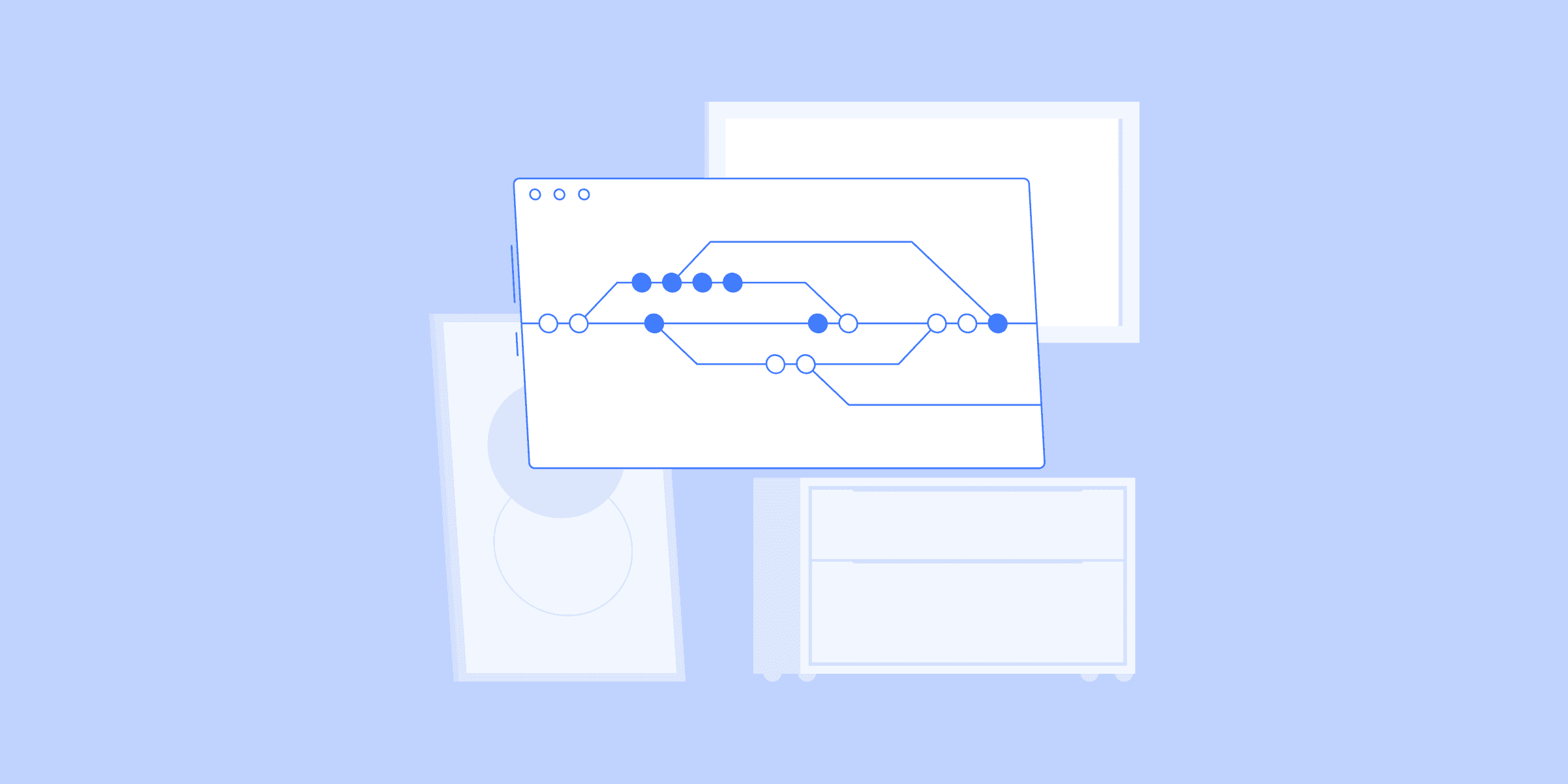
Understanding the Differences: Forwarding Proxy vs Reverse Proxy
Forwarding Proxy vs Reverse Proxy: Understanding the DifferencesIn the world of networking and web hosting, proxies play a vital role in enhancing security, performance, and scalability. Two common types of proxies are forwarding proxies and reverse proxies. While they both serve similar purposes, they have distinct functionalities and use cases. In this blog post, we will delve into the differences between forwarding proxies and reverse proxies, and how they contribute to the overall performance and security of your website.Forwarding Proxy: Boosting Performance and PrivacyA forwarding proxy, also known as a forward proxy or simply a proxy server, acts as an intermediary between client devices and external web servers. When a client device requests a web resource, such as a webpage or a file, the request is first sent to the forwarding proxy. The proxy then forwards the request to the destination server on behalf of the client, receives the response from the server, and relays it back to the client.One of the primary advantages of a forwarding proxy is its ability to improve performance. By caching frequently requested resources, the proxy can serve subsequent requests from its cache instead of fetching them from the destination server. This not only reduces latency but also reduces the load on the destination server.Additionally, a forwarding proxy can enhance privacy by masking the client's IP address. When a client device communicates with a web server through a forwarding proxy, the server only sees the IP address of the proxy server, not the client's real IP address. This adds an extra layer of anonymity and can be useful in scenarios where users want to access restricted content or bypass geo-blocking.Reverse Proxy: Load Balancing and SecurityUnlike a forwarding proxy, a reverse proxy sits between the web server and the client devices. When a client device sends a request to a website, the request is first intercepted by the reverse proxy. The proxy then forwards the request to one of the available web servers based on predefined rules, such as load balancing algorithms or server health checks.The primary purpose of a reverse proxy is to distribute incoming requests across multiple servers, ensuring optimal utilization of resources and preventing any single server from becoming overwhelmed with traffic. By balancing the load, a reverse proxy enhances the website's performance, scalability, and availability.Furthermore, a reverse proxy can also enhance security. It can act as a shield, protecting the web servers from direct exposure to the internet. The reverse proxy can inspect incoming requests, filter out any malicious or suspicious traffic, and only pass legitimate requests to the web servers. This adds an extra layer of protection against various types of attacks, such as Distributed Denial of Service (DDoS) attacks or SQL injection attempts.Choosing the Right Proxy for Your NeedsWhen deciding whether to use a forwarding proxy or a reverse proxy, consider your specific requirements and goals. If your primary concern is improving performance and privacy for your users, a forwarding proxy might be the right choice. On the other hand, if you're running a high-traffic website and want to enhance scalability, load balancing, and security, a reverse proxy would be more suitable.In some cases, a combination of both types of proxies might be necessary. For example, a reverse proxy can sit in front of a group of forwarding proxies, providing load balancing and security for the forwarding proxies themselves. This hybrid approach can help achieve the best of both worlds, ensuring optimal performance, privacy, and security for your website.ConclusionIn summary, forwarding proxies and reverse proxies have distinct functionalities and use cases in the world of networking and web hosting. Forwarding proxies improve performance and privacy for client devices by caching resources and masking their IP addresses. On the other hand, reverse proxies distribute incoming requests to multiple web servers, enhancing load balancing, scalability, and security. Depending on your needs, you can choose one or a combination of both proxies to achieve the desired performance, privacy, and security for your website.
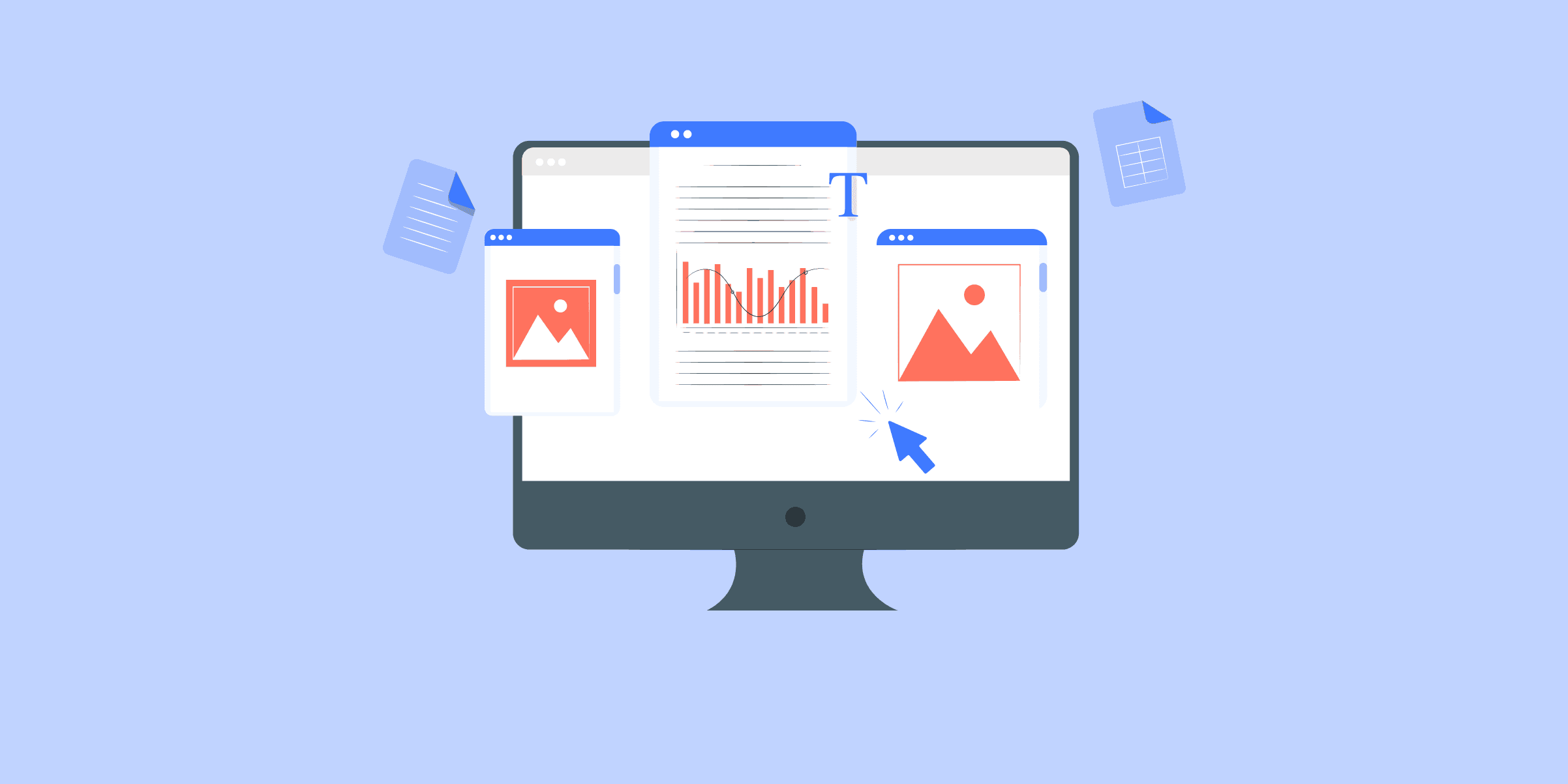
Understanding the Intricacies of Proxy Pricing: A Comprehensive Guide to LIKE.TG's Billing Options
IntroductionSelecting a proxy service goes beyond merely opting for various types; it's about diving deep into a labyrinth of pricing models. This can be particularly challenging given that the market offers a range of pricing models based on multiple parameters, including the type of proxies offered, their effectiveness, and additional features. In this definitive guide, we aim to de-mystify this landscape and zoom in on the billing plans offered by LIKE.TG, a major contender in the proxy market. General Billing Models in the MarketBefore we delve into the specifics of LIKE.TG's pricing plans, it's essential to grasp the two broad categories that define the billing models of proxy services. These can be summarized as pay-per-IP and pay-per-GB models: - Pay-per-GB: Here, the cost is calculated based on the amount of data consumed. This model is especially useful if you're running data-intensive tasks but don't require a wide variety of IP addresses. - Pay-per-IP: In this model, you are billed for each IP address that you purchase or rent. This can be beneficial if you require a variety of IP addresses but don't necessarily consume a large amount of data. Many services in the market also offer free trials, allowing prospective customers the opportunity to gauge the platform's features before committing financially. The LIKE.TG AdvantageLIKE.TG stands apart by offering a myriad of proxy types. With an expansive pool of over 90M real, clean, and anonymous residential proxy IPs across 220+ regions worldwide, it caters to a wide array of needs. Whether you are into brand protection, ad verification, data collection, SEO, or other specialized tasks, LIKE.TG offers HTTP(S) & SOCKS5 proxies in both rotating and static options. Further, their state-of-the-art software, IP2 Proxy Manager, integrates all these elements smoothly, ensuring compatibility with various applications. An In-depth Look at LIKE.TG's Pricing Plans Rotating Residential Proxies- Pricing: Starts at $0.7/GB- Billing Method: Based on period and data usage.- Unique Features: Geo-targeting capabilities down to city levels, unlimited IP fetching, and a long-term, six-month plan option. Static Residential ISP Proxies- Pricing: From $1.2/IP- Billing Method: Determined by the number of purchased static residential IPs and plan duration.- Unique Features: Unlimited bandwidth and various plan durations ranging from daily to monthly. SOCKS5 Residential Proxies- Pricing: Beginning at $0.04/IP- Billing Method: Charged by the number of IP bind times.- Unique Features: Plan longevity with no expiration. Up to 6-hour binding with re-binding options if the IP remains online. Rotating Unlimited Traffic Proxies- Pricing: Starts at $3/hour- Billing Method: Fixed by plan duration.- Unique Features: Real residential IPs with no limit on traffic and bandwidth. S5 Unlimited Proxies- Pricing: Starts at $86/day- Billing Method: Billed by plan duration.- Unique Features: Unlimited IPs, bind times, traffic, and requests with daily to monthly plan options. Making the Right ChoiceGiven LIKE.TG’s comprehensive set of billing plans, you can find something that aligns perfectly with your needs. By mapping out your specific requirements and comparing them with available plans, you can streamline your decision-making process. ConclusionLIKE.TG distinguishes itself in the crowded proxy market by offering flexible and comprehensive billing plans that cater to various user needs. These billing options simplify the usually complex decision-making process, enabling users to zero in on a plan that best suits their specific requirements without the confusion that often comes with convoluted pricing models. With LIKE.TG, choosing the right proxy service has never been more straightforward.

Understanding the Landscape: The Contrasts and Similarities in B2B and B2C Buying Processes
In the ever-complex world of marketing, understanding your target buyer is crucial. This article seeks to dissect the unique characteristics of B2B (business-to-business) and B2C (business-to-consumer) buying processes. By diving deep into these facets, we aim to provide actionable insights for marketers. Importance of Understanding Buying ProcessesUnderstanding these processes is not just academic; it's essential for crafting effective marketing strategies. It helps in targeting your audience better and meeting their specific needs. After all, a well-targeted marketing strategy is far more likely to succeed. B2B Buying ProcessStakeholdersIn a B2B setting, the decision-making process is often a committee effort. A typical buying committee could include members from finance, IT, procurement, and even the C-suite. Each stakeholder brings a different perspective, which results in a holistic but complex decision-making process. TimeframeTime is a luxury in B2B buying. Given the need for committee approvals and comprehensive evaluations, these buying cycles are generally more extended. But remember, good things take time, and in a B2B context, a longer cycle often translates to well-thought-out decisions. Research-Driven Decision MakingYou wouldn't go into a battle without a strategy, right? Similarly, B2B buyers heavily rely on thorough research. Whether it's sifting through whitepapers, watching webinars, or even hiring industry experts for consultations, they leave no stone unturned. Focus on ROIIn the B2B world, ROI isn't just a buzzword; it's a mantra. Most purchasing decisions are made with a sharp focus on long-term value, overshadowing the upfront costs. It's not about the price tag but what you get for that price. B2C Buying ProcessIndividual Decision MakingHere, the scene is more like a one-man show. A single person usually drives B2C decisions. No need for endless meetings or getting multiple stamps of approval. Speed of the ProcessIf B2B is a marathon, B2C is a sprint. Transactions often happen in a heartbeat. Just a few clicks, and boom, you've made a purchase. Convenience is king in this realm. Emotionally Driven DecisionsRemember the last time an ad made you laugh or cry? B2C marketers are magicians of emotion. They aim to hit the emotional chords to prompt immediate action. Focus on Satisfying Needs/WantsWhile B2B is all about logic and long-term value, B2C is often about fulfilling immediate needs or even impulsive wants. Here, it's more about what feels right at the moment. Key Differences SummarizedSide-by-Side ComparisonB2B is like chess, strategic and long-term, while B2C is more like a game of darts—quick, impulsive, and immediate. Although both aim to meet the needs of their respective audiences, the approach is remarkably different. Target Audience and Their ExpectationsIn B2B, you're talking to a boardroom, whereas, in B2C, you're talking to an individual. Understanding this can make or break your marketing strategy. Implications for MarketersSales Funnel StrategyA one-size-fits-all approach won't work. B2B requires a longer sales funnel that nurtures potential clients over time. In contrast, B2C is all about getting that quick sale. Lead NurturingIn B2B, expect to send multiple follow-up emails, offer premium content, and even conduct one-on-one demos. For B2C, think flashy ads and limited-time offers. Marketing Automation ConsiderationsB2B marketers might use sophisticated CRM software to score and nurture leads, while B2C marketers may rely on social media algorithms to retarget ads effectively. Additional InsightsMarketing ChannelsFor B2B, think LinkedIn, whitepapers, and industry webinars. For B2C, it's more about viral posts on Instagram or TikTok challenges. Communication StyleB2B thrives on formality and professionalism. B2C? Well, it's like chatting with a friend—casual, straightforward, and relatable. ConclusionSummary of Key TakeawaysB2B and B2C buying processes may seem worlds apart, and in many ways, they are. However, the essence remains the same: understanding your buyer. Whether you are targeting a conglomerate or an individual, knowing how they buy is the first step in crafting a marketing strategy that converts. Action Steps for MarketersKnow your buyer, tailor your approach, and choose your channels wisely. A well-crafted strategy considering these aspects will not only connect better but also convert better.

Understanding the Role and Benefits of a Proxy Server for Enhanced Internet Security
What is a proxy server?A proxy server acts as an intermediary between a user's device and the internet. When a user requests a website or other online resource, the request first goes through the proxy server. The server then retrieves the requested content on behalf of the user and returns it to them. This process allows users to access web content without revealing their IP address or location.How does a proxy server work?When a user connects to the Internet, they are assigned an IP address that identifies the location of their device. However, when a proxy server is used, the user's request is sent to the server instead of directly to the website. The proxy server then makes the request on behalf of the user, using its own IP address. This hides the user's IP address, giving them greater anonymity online.Types of proxy serversThere are several types of proxy server, each offering different levels of functionality and security. Here are some common types:1. HTTP proxy: This type of proxy server handles web traffic and is primarily used for accessing websites.2. SOCKS proxy: Also known as a socket proxy, this server supports any type of Internet traffic, making it ideal for applications such as gaming and peer-to-peer file sharing.3. Transparent Proxy: This type of proxy server does not provide anonymity as it does not hide the user's IP address. It is mainly used to cache frequently accessed web content to improve network performance.Benefits of using a proxy server1. Improved privacy: By hiding the user's IP address, a proxy server helps protect their online identity and personal information from potential hackers or other cyber threats.2. Anonymity: Proxy servers allow users to browse the Internet anonymously by hiding their true IP address.3. Bypass content restrictions: In many cases, websites or online platforms may be inaccessible due to regional restrictions or censorship. By connecting through a proxy server located in a different region, users can bypass these restrictions and access the content they want.4. Improved network performance: Proxy servers can cache frequently accessed web content, reducing bandwidth usage and speeding up page load times.5. Security: Proxy servers act as a barrier between the user's device and the Internet, providing an additional layer of security against malicious attacks.In conclusion, a proxy server is a valuable tool for ensuring privacy, security and unrestricted access to online content. Whether you are an individual concerned about your online identity or a business looking to protect sensitive data, proxy servers offer many benefits. By understanding how they work and the different types available, you can choose the right proxy server to meet your specific needs.

Understanding the Role and Benefits of Using an ISP Proxy
In today's era of online communication, internet service providers (ISPs) play a crucial role in the internet ecosystem. They are the gatekeepers who ensure that internet traffic is routed correctly and efficiently. A proxy server, on the other hand, is a gateway between the user's computer and the internet. In this blog, we will explore the concept of ISP proxy, its benefits, and how it can help your online business.An ISP proxy is essentially a proxy server that is operated by an ISP. It is used to filter internet traffic and ensure that users are provided with a smooth and safe browsing experience. This is achieved by intercepting requests made by the user's browser and routing them through the proxy server before they reach the destination. The proxy server then examines the requests and determines whether they are safe or not. If the requests are deemed unsafe, they are blocked or filtered, and the user is notified.One of the key benefits of an ISP proxy is that it can improve the speed and reliability of internet connections. This is achieved by caching frequently used web pages and files on the proxy server. When a user requests the same page or file, the proxy server can retrieve it from the cache instead of requesting it from the internet. This can result in faster load times and a more seamless browsing experience.Another advantage of an ISP proxy is that it can improve online security. The proxy server can filter out malicious traffic and block access to unsafe websites. It can also mask the user's IP address, making it more difficult for hackers to track their activity. This can be especially important for businesses that handle sensitive data, as it can help to prevent data breaches and cyber attacks.From an SEO perspective, an ISP proxy can also be advantageous. By caching frequently used web pages and files, it can reduce the load on your website's servers. This can improve your website's load times, which is a key factor in search engine rankings. Additionally, an ISP proxy can help to prevent spam and other unwanted traffic, which can also improve your website's search engine rankings.In conclusion, an ISP proxy can provide many benefits for both individual users and businesses. It can improve internet speed, online security, and even SEO. If you are looking for a reliable and efficient way to enhance your online browsing experience, then an ISP proxy could be the solution you have been looking for.

Understanding the Role of an IP Proxy Server
In the vast ecosystem of the internet, the IP proxy server stands as a pivotal element, wielding significant influence in numerous online interactions. Understanding its functionality, implications, and diverse applications is crucial in navigating the digital landscape efficiently.Unveiling the IP Proxy ServerAn IP proxy server operates as an intermediary between a user's device and the internet. It serves as a gateway, receiving requests from the user and directing them to their destination. The server, in turn, retrieves the requested information and relays it back to the user. In this process, the server's IP address becomes visible to the destination instead of the user's, ensuring a layer of anonymity.Types of IP Proxy ServersTransparent Proxies: These proxies reveal their presence and IP addresses, making them suitable for simple content caching.Anonymous Proxies: Providing a higher level of anonymity, these proxies conceal the user's IP address, but their presence remains detectable.Elite Proxies: Offering the utmost anonymity, these proxies mask both their presence and the user's IP address effectively.The Functionality SpectrumEnhancing Privacy and SecurityThe primary function of an IP proxy server revolves around safeguarding user identity. By concealing the user's IP address, it shields against potential cyber threats, ensuring a more secure browsing experience. Additionally, it aids in bypassing geo-restrictions, enabling access to region-locked content.Optimizing PerformanceBeyond security, IP proxy servers also contribute to optimizing network performance. Caching frequently accessed data locally reduces bandwidth consumption and speeds up access to previously visited websites.Applications in Diverse ArenasBusiness Landscape: In the corporate sphere, IP proxy servers facilitate secure access to sensitive information, protect against unauthorized access, and enable monitoring of employee online activities.Individual Use: For individuals, these servers enable access to region-restricted content, maintain anonymity, and enhance security while browsing.Challenges and ConsiderationsWhile IP proxy servers offer various advantages, they also present challenges. Some servers might compromise data security, introduce latency, or encounter compatibility issues with certain websites or services. Moreover, relying on free proxy servers can pose risks due to their unverified nature.Selecting the Right IP Proxy ServerChoosing the most suitable IP proxy server demands meticulous consideration. Factors such as reliability, speed, level of anonymity, and compatibility with intended usage must be evaluated. Opting for reputable providers or self-hosted solutions often ensures a more secure and efficient experience.Conclusion: The Power of IP Proxy ServersThe IP proxy server remains an indispensable tool in the digital age, offering a delicate balance between anonymity, security, and performance optimization. Understanding its nuances and selecting the appropriate server empowers users and organizations to traverse the online realm with confidence and efficiency.
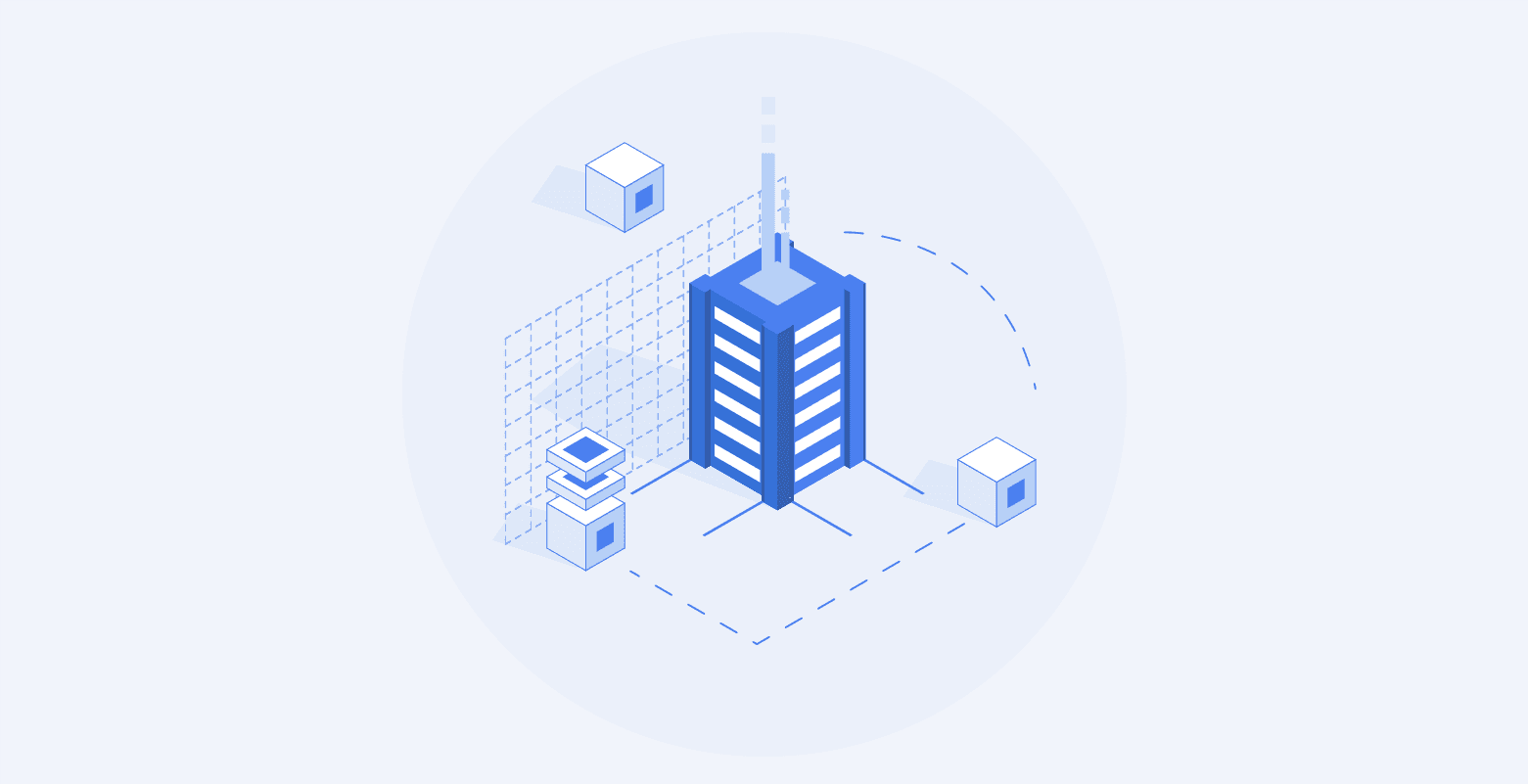
Understanding the Role of Mobile Proxies in the Digital Sphere
In the ever-evolving landscape of online interactions, the utilization of mobile proxies has become increasingly crucial. Understanding their significance and functionalities in various scenarios is key to leveraging their potential.Unveiling the Concept of Mobile ProxiesDefinition and FunctionalityMobile proxies operate through mobile devices and networks, using mobile IP addresses to route internet traffic. They offer enhanced anonymity and often bypass various restrictions imposed on traditional proxies.Distinguishing FactorsCompared to standard proxies, buying mobile proxies presents distinctive advantages, including better IP reputation due to their association with mobile networks and greater adaptability to changing IP addresses.The Advantages of Buying Mobile ProxiesEnhanced Anonymity and Security: Mobile IP proxies offer heightened anonymity and security due to their association with mobile networks, adding an extra layer of protection for users.Bypassing Restrictions: They prove effective in bypassing geo-blocks and access restrictions imposed by certain websites or services, allowing users to access content otherwise unavailable.Improved Performance: Mobile proxies often offer better performance and reliability, benefiting users with faster speeds and more stable connections.Where to Buy Mobile ProxiesProxy ProvidersNumerous providers specialize in offering mobile proxies, catering to different user needs and preferences. Researching these providers' offerings can help in finding suitable and reliable options.Online MarketplacesSeveral online marketplaces facilitate the purchase of mobile proxies, allowing users to compare prices, features, and user reviews before making a selection.Factors to Consider When Buying Mobile ProxiesReliability and Speed: Assess the provider's track record for reliability and speed to ensure a seamless browsing experience.Location and Coverage: Consider the coverage of mobile free proxies in different regions, especially if specific geographic IP addresses are needed.Security Measures: Evaluate the security features offered by mobile proxy providers to safeguard personal data and online activities.The Process of Purchasing Mobile ProxiesIdentifying Needs: Determine the specific requirements such as the number of IP addresses needed, level of anonymity required, and intended usage.Researching Providers: Explore various providers, compare features, pricing, and user feedback to select a reputable mobile proxy service.Testing and Implementation: Opt for providers offering trial periods or demos to test the service before making a commitment.Conclusion: Navigating the Realm of Mobile Proxy AcquisitionBuying mobile proxies presents an opportunity for enhanced online privacy, access, and security. Making an informed decision involves considering various aspects to select a suitable provider that aligns with individual needs.Final ThoughtsIn the digital age where privacy and secure browsing are paramount, buying mobile proxies emerges as a valuable tool. Understanding their functionalities and the criteria for selecting a reliable provider ensures a smoother and more secure online experience.

Understanding the Significance of X-Forwarded-For (XFF) in Modern Networking
In the vast landscape of digital communication, intermediaries often bridge the gap between a user's device and the broader internet. One notable header frequently linked with these intermediaries is the X-Forwarded-For (XFF) header, which serves to trace the initial IP address of a client as it connects to a web server via an HTTP proxy or a load balancer. 1. Decoding X-Forwarded-For (XFF) The X-Forwarded-For (XFF) header has emerged as a widely-accepted standard. It plays a pivotal role in identifying the source IP address of a client interfacing with a web server, especially when passing through an HTTP proxy or load balancer. 2. Challenges with Out-of-Process Architectures In specific architectures that operate out-of-process, forwarding the XFF header automatically becomes a challenge. This limitation necessitates the intervention of a streamlined client library to handle the propagation of this header. The intricacies of this process, while vital, exceed the purview of general documentation. Upon successful propagation of the XFF across all nodes, users can access a range of advanced features: - Uniform access logging through contemporary API runtime filters.- Reliable tracing methodologies either by random sampling or by applying specific headers to instigate tracing. 3. The Realm of Trace Context Headers The tracing journey of a request, gauged by its performance metrics, is crucial in digital communication. Different tracers employ a variety of HTTP headers to: - Establish relationships, notably parent-child dynamics, between tracing spans.- Detect and establish the position of a trace within its hierarchical tree.- Correlate various spans within a trace.- Facilitate decisions regarding the sampling of a trace. 4. Customizing Request/Response Headers Modern networking tools allow users to add custom headers to both requests and responses across various configuration strata, enriching the communicative data transmitted. However, there are certain limitations. Headers prefixed with a colon, as well as the primary Host header, remain immutable using standard mechanisms. Instead, alterations to other headers can be made via specialized strategies. Headers are appended systematically: beginning with specific cluster-level headers, progressing through route and virtual host levels, and culminating with global configurations. The capacity to integrate dynamic values to these headers further magnifies their utility. Conclusion The intricate tapestry of proxies and their associated headers, including the pivotal X-Forwarded-For (XFF), can appear daunting at first glance. Yet, grasping their multifaceted functionalities is imperative in our interconnected era. Armed with comprehensive knowledge, users can optimally leverage these tools, ensuring seamless communication and precise data monitoring.

Understanding the Value of Purchasing an IP Address in the USA
In the realm of online connectivity and digital identity, the significance of an IP address cannot be overstated. For various purposes, acquiring an IP address based in the USA has become an essential consideration.Importance of an IP Address in the USAAccess to Region-Specific ContentOne of the key reasons to buy an IP address in the USA is to access region-locked content, including streaming platforms, websites, and services that are exclusively available in the United States.Enhanced Security and TrustIP addresses based in the USA often provide an added layer of security, particularly when engaging in online transactions or communications, offering a sense of trust due to the country's stringent data protection measures.Exploring Methods to Purchase an IP Address in the USAInternet Service Providers (ISPs)ISP services frequently offer the option to obtain a specific IP address in the USA as part of their subscription plans, catering to both residential and commercial needs.Proxy Services and VPNsProxy services and Virtual Private Networks (VPNs) facilitate the acquisition of USA-based IP addresses, allowing users to browse the internet with a US-based identity, ensuring access to geo-restricted content.Benefits of Buying an IP Address in the USAAccess to Exclusive Content: Acquiring an IP address in the USA grants access to a vast array of content otherwise restricted to that region.Improved Online Security: USA-based IP addresses often come with robust security measures, providing a safer online environment for various activities.Business and Marketing Opportunities: For businesses, having a USA-based IP address can be advantageous in targeting the American market and conducting market research.Factors to Consider Before PurchasingLegal and Compliance IssuesEnsure that the acquisition and use of USA-based bulk IP addresses comply with legal requirements and regulations, considering any potential restrictions or permissions needed.Reliability and SpeedEvaluate the reliability and speed of the service offering the USA-based residential IP address, as this can significantly impact browsing experiences and online operations.Conclusion: Navigating the Realm of IP Address AcquisitionThe decision to buy an IP address in the USA involves considerations of access, security, legal compliance, and business objectives. It’s imperative to weigh the benefits against potential drawbacks and choose a reliable service provider.Final ThoughtsIn the interconnected world of today, the acquisition of a USA-based IP address can unlock a multitude of opportunities, from accessing exclusive content to ensuring heightened online security. Understanding the nuances and implications is crucial in making an informed decision.

Understanding Video Streaming Proxies: An Essential Guide to Access, Privacy, and Performance
Introduction In the era of digital media, streaming videos have become an integral part of our daily lives, be it for entertainment, education, or business purposes. However, accessing certain content can be restricted based on geographical location or other factors. Here's where video streaming proxies come into play. By leveraging services like LIKE.TG, you can access a wide range of content without restrictions. What Are Video Streaming Proxies?A video streaming proxy is more than just a gateway; it's a virtual bridge that connects users to the internet, ensuring secure and anonymous browsing. Acting as an intermediary, it routes the user's requests through another server. This replaces the user's IP address with the server's IP, making it appear as though the traffic originates from a different location. Essentially, this function allows for:- Anonymity: Keeping user identity hidden.- Accessibility: Enabling access to geo-restricted content.- Control: Granting users the ability to filter and monitor content. Why Use Video Streaming Proxies? Access Restricted ContentGeographical restrictions can limit access to videos, music, and other content. With a video streaming proxy, users can virtually change their location, bypassing these restrictions and enjoying content as if they were in an allowed area. Privacy and SecurityPrivacy is a growing concern, and video streaming proxies act as a shield, masking the IP address and thereby protecting against potential cyber threats like hacking and identity theft. This added layer of security keeps personal information safe. Enhanced PerformanceProxies can cache frequently accessed content, which leads to faster loading times and an overall improved streaming experience. This performance enhancement ensures smooth playback, making streaming more enjoyable. Business IntelligenceFor companies, proxies offer the ability to conduct market research and gather competitive intelligence without revealing their identity. This stealth approach enables businesses to gain insights without tipping off competitors. How to Use Video Streaming Proxies? For Individuals: 1. Choose a Reliable Proxy Service: Services like LIKE.TG provide a wide variety of options tailored to individual needs, including residential proxy IPs covering various regions worldwide.2. Configure Your Settings: This might require adjusting browser settings or utilizing a dedicated application. LIKE.TG offers user-friendly tools to ease this process.3. Enjoy Unrestricted Content: Once the proxy is configured, users can freely browse and stream videos, overcoming geographical barriers. For Businesses: 1. Evaluate Your Needs: Understand what you want from the proxy, be it accessing restricted content, gathering data, or analyzing competitors.2. Select a Professional Service: Opt for a reputable service like LIKE.TG that ensures quality, compatibility, and continuous support.3. Integration with Business Tools: Customizable settings allow businesses to configure the proxies to work seamlessly with the tools used for data collection, ad verification, SEO, and other processes. Introducing LIKE.TG LIKE.TG is a leading provider in the proxy service industry, offering a comprehensive range of solutions tailored to various needs. With their robust infrastructure, they provide: - Flexible Options: HTTP(S), SOCKS5 Rotating, and Static Residential Proxies.- Unmetered Bandwidth & Unlimited Concurrent Sessions: For a seamless experience.- Expert Support and User-Friendly Tools: Including IP2 Proxy Manager, compatible with various applications. Conclusion Video streaming proxies have transformed the way we access and consume video content online, providing flexibility, security, and enhanced performance. Whether for personal entertainment or business intelligence, a proxy service like LIKE.TG can make a substantial difference in your streaming experience. By understanding your unique requirements and leveraging the power of proxies, you can unlock a world of content and opportunities.

Undetectable.io — Why is this anti-detection browser seizing the market?
Why is this anti-detection browser seizing the market? Undetectable is an anti-detection browser that safeguards your online identity by altering information about your computer, such as IP address, browser fingerprint, language, fonts, and other parameters. The fingerprint switching technology enables visiting various websites, avoiding blocks and tracking. This opens up opportunities for creating and managing multiple browser profiles with unique settings and extensions. Websites perceive these profiles as real users, without detecting any connections between them. Fingerprinting of real devices with all popular operating systems, including Android and iOS, is utilized. A high level of security and confidentiality is ensured, distinguishing anti-detection browsers from regular proxies or VPNs, which only change the IP address without concealing other data. Strong points of Undetectable What sets Undetectable apart from its competitors? It’s simple! Strong developers, reliability, and respect for users. And in more detail: Fewer risksYou can store accounts locally on your device, in the cloud, or on your own server. You can eliminate the risks associated with third-party storage, especially when it comes to accounts and crypto wallets.Regular updates of the Chromium coreThe Undetectable team regularly and promptly updates the Chromium core to the latest versions. Why is this important? Nowadays, when just one click can update Chrome on millions of devices worldwide, using outdated browser cores sets you apart from the crowd of internet surfers. Moreover, it ensures compatibility with the latest web standards and new security features. 99.99% uptime during the year For three years on the market, Undetectable developers have created an infrastructure that guarantees 99.99% uptime during the year (according to data for the year 2023). FunctionalityThe Undetectable browser offers a complete set of all popular features, such as mass profile creation, managers for exporting and importing cookies, proxies, etc. But there are also unique ones – a synchronizer, text input simulation. Let's take a closer look at each point. Mass profile creationInIn just a few clicks, you can create hundreds of unique profiles using configurations or lists of User-Agents, Cookies, or a universal format (Name, Cookies, Proxy-type, Proxy, User-Agents, Notes). There is a guide on mass profile creation on YouTube.Cookies bot and popular website generatorCookie farming is the process of artificially creating a browsing history on various websites to make a virtual user profile appear more natural and less suspicious to tracking algorithms. Utilizing a cookie bot automates the cookie farming process by simulating normal internet user behavior. In Undetectable, the cookie bot is combined with another service - the Popular Website Generator. It automatically and randomly generates a list of popular internet resources according to the chosen location. As a result, just open the cookies-bot, select the profiles, the country, and the number of websites the robot should visit. It will take care of everything else for you!SynchronizerThis feature lets you simultaneously manage multiple browser profiles. From the moment you press the synchronizer button, your actions in the main window will be replicated in other windows. For example, typing text, opening new tabs, scrolling through social networks, installing extensions, and so on. Easy export and import: proxies, cookies, bookmarksUndetectable supports session and proxy transfer in several popular formats, including JSON in the form of macros. There is a special manager for working with proxies. You can use a special function in the profile manager for importing bookmarks Mass extension installationThe browser extension manager allows you to add extensions to all profiles at once, remove, or deactivate them as needed. Paste like humanThis feature emulates human behavior when pasting text, creating a more realistic and natural browsing usage pattern. To do this, just copy the text and right-click on the desired field, then select "Paste like a human". The anti-detection browser will automatically adjust the speed and pauses when pasting text, making it more similar to natural user behavior and reducing the chance of detecting automated actions. Automation and APIWith specialized libraries such as Puppeteer, Playwright, Selenium, you can automate processes in the Chromium browser using an API via the Chrome DevTools Protocol. Check the documentation for more details. The API works with Chromium flags.Usability and amenitiesThis anti-detection browser is not only functional but also optimized for the comfortable work of large teams.More than 33 permission settings for team collaboration– User role division – An Undetectable user with administrator rights can create a role and assign it a specific set of permissions and accesses.– Profile grouping – The system allows profiles to be grouped and provides users with access to multiple groups, expanding the possibilities of segmenting permissions for team members.– Cloud web panel, where the administrator can not only manage roles, groups, and sessions but also track the status of cloud profiles in real-time.OptimizationUndetectable is optimized for working on various operating systems. There are three versions: for Windows 10/11, for devices with macOS on M1/M2 chips, and for macOS on Intel processors. Working on large projects will be a pleasure. Undetectable can load over 5000 profiles in a matter of seconds. It supports mass work with cloud and local profiles.Small but useful featuresThe real useful tools in the world of anti-detection browsers: hotkeys, intuitive account import using Drag & Drop, notes, folders, tags for navigation, dark theme, auto-cleaning of unnecessary cache, etc.PricingThe basic paid plan starts at just $49. And it provides access to almost all features, including unlimited local profiles. Let's see what all paid plans have in common. Local profiles: All plans allow you to create and use local profiles without any limitations on quantity. Cloud profiles: All plans include access to cloud profiles, but with different limits depending on the selected plan. Access to the configuration store: All plans provide access to the configuration store, which allows for additional purchase of browser fingerprints. Free configs updates are provided twice a week. Cookie file export: All plans allow you to export cookie files. Mass profile creation: Mass profile creation feature is available on all plans. Cookie warming bot: The cookie warming bot feature is also available on all plans. Local API: Available on all plans. Browser extensions support: Available on all plans, including the free one. Broadly, the plans differ in the number of cloud profiles, some export features, and the number of users. For more detailed information about the differences, you can check the documentation.Just try to register and download Undetectable from the official website. You can use the free plan to try. In case of having any questions, you can contact customer support:https://t.me/UndetectableBot [email protected] Keep up with the latest news on social media:Telegram chat: https://t.me/undetectable_ENchatNews channel: https://t.me/undetectable_ioFacebook: https://www.facebook.com/undetectableio/ Twitter: https://twitter.com/undetectable_io

Unleash the Potential! Secrets to Web Scraping Amazon Pages Without Getting Blocked
Data on the internet is ubiquitous, and for many businesses and individuals, web scraping is crucial for market research, competitive analysis, product positioning, and more. However, as one of the world's largest e-commerce platforms, Amazon has strict anti-scraping mechanisms, often leading to blocked scraping attempts and the inability to access the desired data. So, how can we successfully scrape Amazon pages without getting blocked? This article will introduce you to some effective methods and techniques to achieve smooth and efficient web scraping on Amazon. I. Effective Methods 1.Understand Amazon's Anti-Scraping MechanismsBefore initiating web scraping on Amazon, it is essential to grasp Amazon's anti-scraping mechanisms. Amazon uses various techniques to detect and block scraping activities, such as captchas, user behavior analysis, and IP blocking. Understanding these mechanisms helps us evade them and improves the success rate of web scraping. 2.Use Suitable User-AgentThe User-Agent is part of the HTTP request that identifies the client type initiating the request. When scraping Amazon pages, setting a suitable User-Agent to mimic a real browser request reduces the probability of being recognized as a scraper. Additionally, to avoid detection due to repeated User-Agents, it is advisable to randomly rotate User-Agents to enhance the scraping's anonymity. 3.Set a Reasonable Crawling FrequencyFrequent crawling can trigger Amazon's suspicion and result in IP blocking. Therefore, it is crucial to set a reasonable crawling frequency, avoiding excessively frequent requests to web pages. Simulating real user behavior, such as clicking links and browsing products, can effectively reduce the likelihood of being blocked. 4.Use IP ProxiesAmazon often identifies and blocks scrapers based on IP addresses. Using IP proxies helps to hide the real IP address, enabling requests from different IP addresses to circumvent being blocked. When choosing IP proxies, opt for stable, high-speed services with random rotation features to ensure smooth scraping. 5.Avoid Using Automation ToolsAlthough automation tools can improve scraping efficiency, they are prone to being recognized as scraping activities by Amazon. To avoid being blocked, it is preferable to employ manually written scraping codes that mimic real user interactions, enhancing the scraping's stealthiness. 6.Utilize JavaScript Rendering TechniquesAmazon's webpage content is often generated dynamically using JavaScript. Hence, when scraping webpages, it is essential to use JavaScript rendering techniques to ensure capturing the complete webpage content, preventing missing dynamically generated information from affecting the scraping results. 7.Monitor and Adjust Scraping StrategiesAmazon's anti-scraping mechanisms may change at any time. Therefore, continuous monitoring of scraping results and timely adjustments to scraping strategies are necessary. If scraping failures or blocks are detected, prompt adjustments should be made to ensure the continuous and stable progress of web scraping. In conclusion, while Amazon's anti-scraping mechanisms are stringent, applying methods such as setting proper User-Agents, crawling frequency, using IP proxies, JavaScript rendering, and other techniques can facilitate successful web scraping on Amazon without being blocked. The flexible application and ongoing optimization of these methods will help businesses and individuals achieve efficient and accurate Amazon web scraping, providing robust support for market research and competitive analysis. II. Using Overseas Residential Proxies Using overseas residential proxies is a crucial strategy when scraping Amazon pages. Overseas residential proxies provide genuine residential IP addresses from different countries and regions, effectively simulating real user browsing behaviors and reducing the likelihood of being recognized as a scraper by Amazon. The advantage of overseas residential proxies lies in the high purity of their IP addresses, as they come from authentic residential networks rather than data centers or servers. Since the IP addresses of overseas residential proxies closely resemble those of real users, Amazon finds it challenging to distinguish scraper behavior from genuine user activity. This makes overseas residential proxies an effective tool for web scraping on Amazon without getting blocked. Furthermore, using overseas residential proxies can bypass geographical restrictions. As Amazon has different website versions and product information in various countries and regions, utilizing overseas residential proxies allows easy access to and retrieval of Amazon webpage data on a global scale. This is highly advantageous for businesses conducting global market research and competitive analysis. However, when choosing overseas residential proxies, certain considerations are essential. First, select stable and reliable proxy providers to ensure the IP addresses they offer possess high anonymity and randomness, thereby avoiding detection as scrapers by Amazon. Second, pay attention to setting a reasonable crawling frequency to prevent Amazon from becoming alert due to excessively frequent requests. Additionally, timely monitoring of scraping results and adjustments to scraping strategies according to the situation are crucial. Overall, using overseas residential proxies is one of the key strategies for web scraping Amazon pages without getting blocked. It helps businesses and individuals efficiently retrieve Amazon webpage data, providing strong support for market research, competitive analysis, and product positioning, creating more opportunities and possibilities for business development. Thus, leveraging overseas residential proxies effectively will be a key factor in your success when scraping Amazon pages.

Unleashing Online Freedom: The Power of Proxy Unblocker
Title: Unleash Your Online Freedom with Proxy UnblockersIntroduction (100 words)In the ever-evolving world of the internet, access to certain websites and online content may be restricted due to geographical or governmental restrictions. However, there are tools available to bypass these limitations, and one such tool is a proxy unblocker. In this blog post, we will explore the concept of proxy unblockers, their benefits, and how they can empower you to navigate the online world without constraints.1. Understanding Proxy Unblockers (150 words)Proxy unblockers are tools that enable users to bypass internet restrictions by rerouting their web traffic through a proxy server. This server acts as an intermediary between the user and the website they wish to visit, allowing them to access content that may otherwise be blocked. By concealing your true IP address and location, proxy unblockers grant you the ability to browse the internet anonymously and securely. With the advent of advanced technologies, modern proxy unblockers often come equipped with additional features such as encryption, ad-blocking, and malware protection.2. The Benefits of Using Proxy Unblockers (200 words)a) Access to Restricted Content: Whether you want to watch region-locked videos, stream content from platforms unavailable in your country, or access websites banned by local authorities, a proxy unblocker can instantly grant you access to such content and broaden your online experience.b) Anonymity and Privacy: Proxy unblockers ensure that your browsing remains private, protecting your personal information and preventing your online activities from being traced back to you. This is particularly useful when accessing public Wi-Fi networks or when traveling to countries with strict internet censorship.c) Enhanced Security: Proxy unblockers often include built-in encryption protocols that safeguard your data against potential attacks. By encrypting communication channels, these tools make it significantly more difficult for hackers to intercept your sensitive information.d) Faster Internet Speed: In some cases, a proxy unblocker can enhance your browsing experience by optimizing network connections and reducing latency. By connecting to servers located closer to the website's servers, you can enjoy faster load times and smoother streaming.3. How to Choose the Right Proxy Unblocker (150 words)When selecting a proxy unblocker, it is essential to consider several factors: reliability, security features, ease of use, and customer support. Look for proxy unblockers that have positive user reviews, provide strong encryption, offer a user-friendly interface, and have responsive customer service. Additionally, consider the pricing plans and whether the proxy unblocker supports your desired platforms, such as Windows, macOS, or mobile devices.Conclusion (100 words)Proxy unblockers have emerged as essential tools for individuals seeking to overcome online restrictions and explore the internet freely. By granting you access to blocked content, ensuring anonymity and privacy, and enhancing security, these tools empower users to break free from the confines of internet censorship. As you navigate the vast digital landscape, remember to choose a proxy unblocker that aligns with your needs and preferences. Embrace the freedom to access unrestricted online content by incorporating a trusted proxy unblocker into your daily internet routine.
相关产品推荐


































